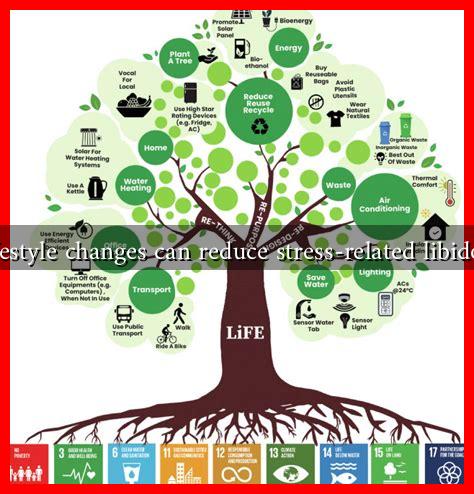-
Table of Contents
What Lifestyle Changes Can Reduce Stress-Related Libido Issues?
In today’s fast-paced world, stress has become a common companion for many individuals. While stress can affect various aspects of life, one of the most significant areas it impacts is sexual health and libido. Stress-related libido issues can lead to feelings of inadequacy, relationship strain, and decreased overall well-being. Fortunately, making certain lifestyle changes can help mitigate these effects. This article explores effective strategies to reduce stress and enhance libido.
Understanding the Connection Between Stress and Libido
Before diving into lifestyle changes, it’s essential to understand how stress affects libido. Stress triggers the release of cortisol, a hormone that can inhibit sexual desire. According to a study published in the Journal of Sexual Medicine, high levels of stress are linked to decreased sexual arousal and satisfaction. Furthermore, chronic stress can lead to anxiety and depression, further compounding libido issues.
Effective Lifestyle Changes to Combat Stress and Boost Libido
Implementing lifestyle changes can significantly reduce stress and improve sexual health. Here are some effective strategies:
- Regular Exercise: Physical activity is a powerful stress reliever. Exercise releases endorphins, which are natural mood lifters. Aim for at least 30 minutes of moderate exercise most days of the week. Activities like jogging, swimming, or yoga can be particularly beneficial.
- Mindfulness and Meditation: Practicing mindfulness and meditation can help calm the mind and reduce stress levels. Techniques such as deep breathing, progressive muscle relaxation, and guided imagery can enhance emotional well-being and improve libido.
- Healthy Diet: Nutrition plays a crucial role in overall health, including sexual health. A balanced diet rich in fruits, vegetables, whole grains, and lean proteins can improve energy levels and mood. Foods high in omega-3 fatty acids, such as salmon and walnuts, are known to support brain health and reduce anxiety.
- Quality Sleep: Sleep deprivation can exacerbate stress and negatively impact libido. Aim for 7-9 hours of quality sleep each night. Establishing a bedtime routine, limiting screen time before bed, and creating a comfortable sleep environment can enhance sleep quality.
- Social Connections: Maintaining strong social ties can provide emotional support and reduce feelings of isolation. Engaging in social activities, spending time with loved ones, or joining support groups can help alleviate stress.
- Limit Alcohol and Caffeine: While moderate alcohol consumption may seem relaxing, excessive intake can lead to increased anxiety and decreased libido. Similarly, high caffeine consumption can contribute to stress. Moderation is key.
Case Studies and Statistics
Research supports the effectiveness of these lifestyle changes. A study conducted by the American Psychological Association found that individuals who engaged in regular physical activity reported lower stress levels and higher sexual satisfaction. Additionally, a survey by the National Health Service (NHS) revealed that individuals who practiced mindfulness reported a 30% increase in sexual desire.
Moreover, a case study involving a couple experiencing libido issues due to stress highlighted the positive impact of lifestyle changes. After incorporating regular exercise, mindfulness practices, and improving their diet, the couple reported a significant increase in intimacy and sexual satisfaction within three months.
Conclusion
Stress-related libido issues can be challenging, but they are not insurmountable. By making conscious lifestyle changes—such as engaging in regular exercise, practicing mindfulness, maintaining a healthy diet, ensuring quality sleep, fostering social connections, and moderating alcohol and caffeine intake—individuals can significantly reduce stress and enhance their sexual health. Remember, the journey to improved libido is a holistic one, and small, consistent changes can lead to substantial improvements over time.
For more information on managing stress and improving sexual health, consider visiting resources like the American Psychological Association or the NHS Healthy Sex Life page.


